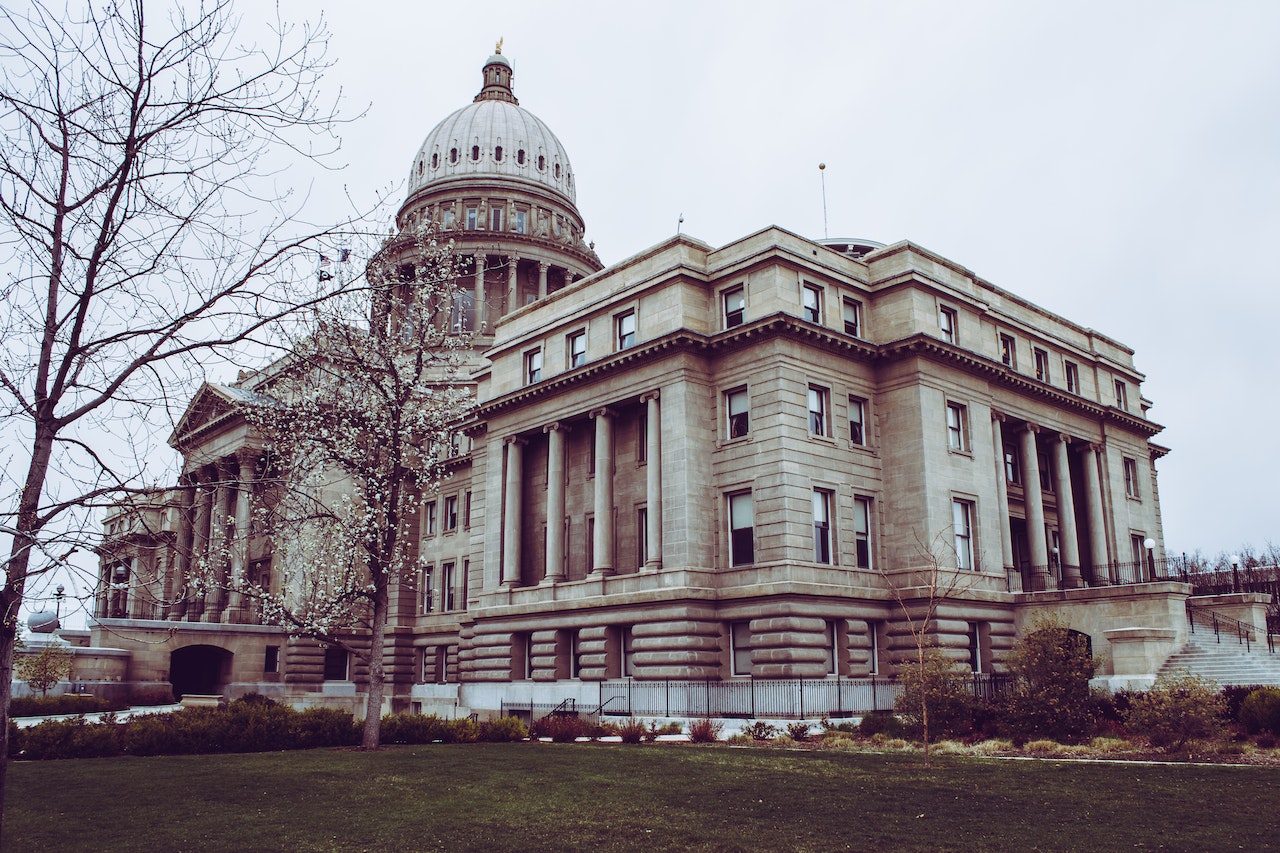Political Science Program Map

B.S. in Political Science
Political Scientists are some of the most versatile graduates in the career world, ranging from attorneys and city managers to lobbyists and not-for-profit directors, from professors to researchers, and from entrepreneurs to members of Congress.
Stats
60
Core Credit Hours
42
Major Credit Hours
18
Elective Credit Hours
- Plan Your Degree
- Crush Your Course
- Find Your Place
- Broaden Your Perspectives
- Connect Off-Campus
- Take Care of Yourself
- Pave Your Path
Plan Your Degree
Disclaimer: This program map is intended ONLY as a guide for students to plan their course of study. It does NOT replace any information in the Undergraduate Catalog, which is the official guide for completing degree requirements.
| Course Name | Credit Hours |
|---|---|
|
C1: ENGL 1101
English Composition I |
3 |
|
M: MATH 1401
Elementary Statistics |
3 |
|
P2: POLS 1101
American Government |
3 |
|
F: PHIL 2020
Critical Thinking |
3 |
| T2: Non-lab Science | 3 |
Milestone:
- POLS 1101 is a prerequisite for all other POLS major courses.
| Course Name | Credit Hours |
|---|---|
|
C2: ENGL 1102
English Composition II |
3 |
|
S1 OR P1
World or US History |
3 |
| T1: Science + Lab | 4 |
| I1: Oral Communication | 3 |
| A: Humanities | 3 |
15 Fall Credit Hours + 16 Spring Credit Hours = 31 Credit Hours
| Course Name | Credit Hours |
|---|---|
|
F: POLS 2101
Introduction to Political Science |
3 |
| A: Humanities | 3 |
| S2: Social Science | 3 |
| T3: STEM Course | 3 |
| I2: Institutional Option | 2 |
| Course Name | Credit Hours |
|---|---|
|
S1 OR P1
World or US History |
3 |
|
F: POLS 2201/2401/2601
State & Local Government, Global Issues, or Introduction to Political Science Inquiry |
3 |
|
F: Course
1000 or 2000 level class as specified |
3 |
|
F: Course
1000 or 2000 level class as specified |
3 |
|
F: Maor Course
1000 or 2000 level class as specified |
3 |
14 Fall Credit Hours + 15 Spring Credit Hours = 29 Credit Hours
| Course Name | Credit Hours |
|---|---|
|
POLS Course
Any 3000-level POLS class |
3 |
|
POLS Course
Any 3000-level POLS class |
3 |
|
POLS Course
Any 4000-level POLS class |
3 |
|
Elective
Upper Division Course |
3 |
| Elective | 3 |
| Course Name | Credit Hours |
|---|---|
| POLS Course
Any 4000-level POLS class |
3 |
| POLS Course
Any 4000-level POLS class |
3 |
| POLS Course
Any 4000-level POLS class |
3 |
| Elective | 3 |
| Elective | 3 |
15 Fall Credit Hours + 15 Spring Credit Hours = 30 Credit Hours
| Course Name | Credit Hours |
|---|---|
|
POLS Course
Any 3000 or 4000-level POLS class |
3 |
|
POLS Course
Any 3000 or 4000-level POLS class |
3 |
|
POLS Course
Any 3000 or 4000-level POLS class |
3 |
| Elective Upper Division Course |
3 |
| Elective | 3 |
| Course Name | Credit Hours |
|---|---|
| Capstone Experience | 3 |
|
POLS Course
Any 4000-level POLS class |
3 |
|
POLS Course
Any 4000-level POLS class |
3 |
|
POLS Course
Any 4000-level POLS class |
3 |
|
POLS Course
Any 4000-level POLS class |
3 |
15 Fall Credit Hours + 15 Spring Credit Hours = 30 Credit Hours
Crush Your Course
First Year:
- Focus on your core courses to build your foundations.
- Your English and Communication courses will help you with your political science coursework.
- Take POLS 1101 - Intro to American Government right away! It’s a prerequisite for all your other political science major courses.
Middle Years:
- Don’t put off those science and math courses!
- Make sure to mix these in with your other coursework so that you’re developing the skills you need when you need them and not overwhelming yourself in a single semester.
- Identify courses within each area of your major (like comparative, international relations, etc.) that fit with your career goals.
Last Year:
- Use your electives to explore other disciplines and find courses complementary to your major! Not sure where to start? Ask your political science faculty and your advisor what they would recommend!
Find Your Place
First Year:
- Get involved with the student government.
- Check out UWG’s Academic Transition Programs.
- Attend Constitution Day at UWG.
- Visit the Office of Undergraduate Research.
- Explore all the other events, clubs, and organizations available to you.
Middle Years:
- Thinking about law school? Check out the pre-law society.
- Join the civic book club.
- Attend guest lectures hosted by the Murphy Center.
- Attend UWG Scholars’ Day.
Last Year:
- Consider running for office in student government.
- Hone your leadership skills by mentoring new political science students.
- Ask about research opportunities with your favorite political science professor.
Broaden Your Perspectives
First Year:
- Check out the education abroad office.
Middle Years:
- Consider a study abroad program. Check out students’ stories of their experiences.
Last Year:
- Assess your cultural competency.
- Consider working abroad and research visa regulations.
- Explore practices of creating more inclusive careers.
Connect Off-Campus
First Year:
- Visit Wolves Vote to learn about the voting process and registration.
- Consider volunteering for a campaign or organization in your community.
Middle Years:
- Complete an internship in your field.
- Consider a summer or part-time job.
- Ask your department about networking opportunities with alumni.
Last Year:
- Ask for advice from professionals in your field of interest.
- Explore career shadowing opportunities.
Take Care of Yourself
First Year:
- Visit Health Services.
- Get fit! Visit URec to see all your options.
- Visit the Center for Economic Education and Financial Literacy.
Middle Years:
- Take a fitness class, climb the rock wall, or join an intramural team.
- Consider whether counseling is right for you: take a mental health screening.
Last Year:
- Explore a farmer’s market for fresh produce.
- Develop a post-graduation exercise plan.
- Explore your loan repayment options and complete your exit counseling.
Pave Your Path
First Year:
- Complete a self-assessment to see what careers and majors are right for you.
- Visit Career Services.
- Create your profile on Handshake.
- Consider applying for an on-campus job.
Middle Years:
- Draft your resume and attend a resume blitz.
- Learn about how to network on social media and update your Handshake profile.
- Draft your personal statement.
- Visit the graduate school to find out about graduate programs and admission requirements.
Last Year:
- Request references from professors and supervisors.
- Draft your resume cover letter and personal statement and revise it with career services.
- Attend business fairs and career fairs at UWG and across the state.
- Attend an interview workshop.
- Apply for graduate programs.
Careers

Career Opportunities
This degree may help you get work as the following:
- Educator
- Federal, state, and local government
- Intelligence and homeland security
- Interest groups
- International and domestic business
- International development
- Local nonprofit organization
- Law
- Policy analyst
- Political campaigns
HeadingSub-Heading
Have any questions about your major?
Don't forget to check out Wolf Watch to explore degree requirements!
